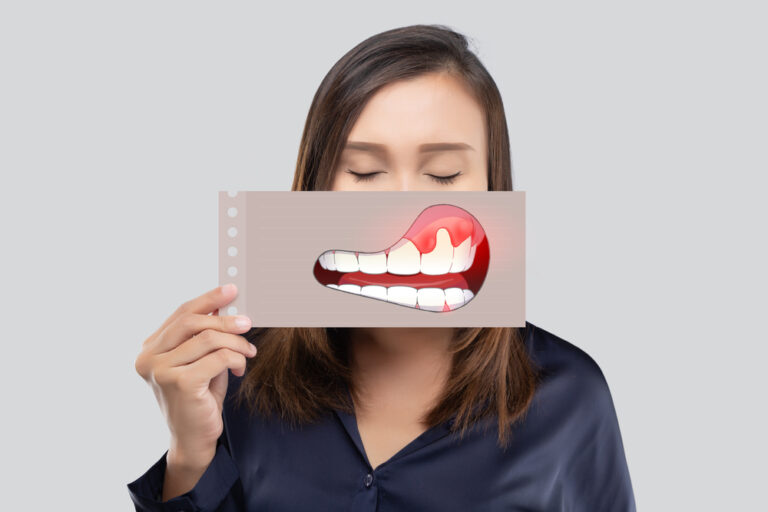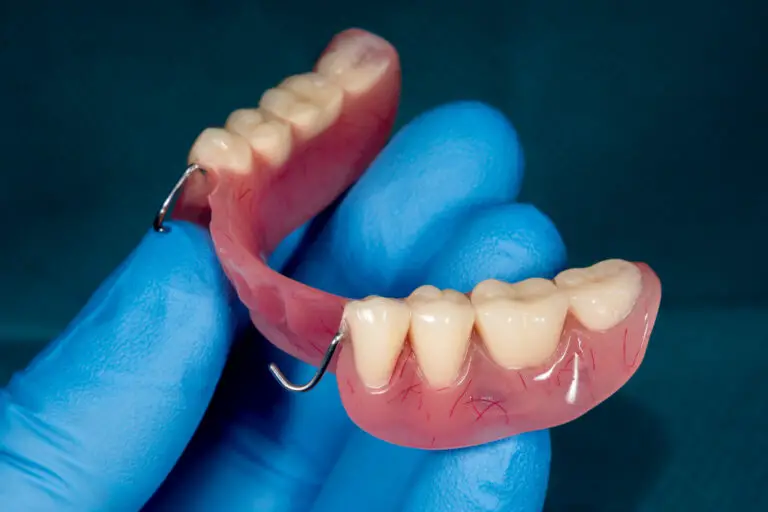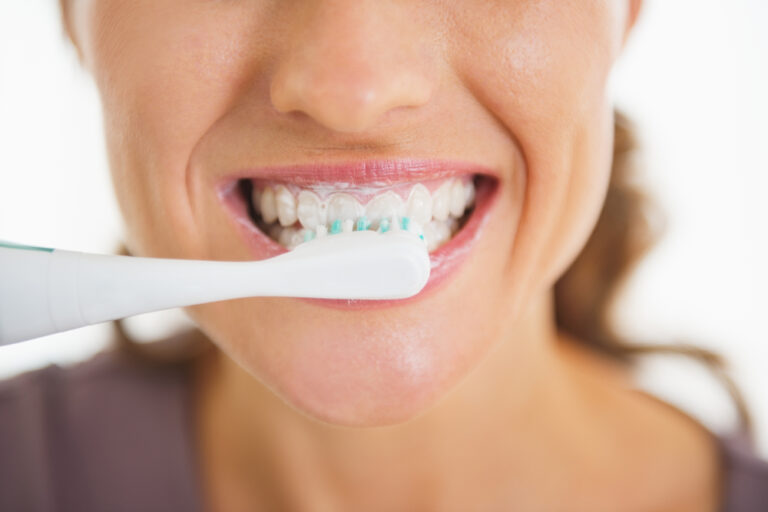If you’re experiencing gum pain, you may be wondering if it will go away on its own or if you need to seek treatment. Gum pain can be caused by a variety of factors, including gum disease, injury, or infection. The good news is that in many cases, gum pain will go away on its own with proper care and attention.
However, it’s important to note that gum pain can also be a sign of a more serious dental issue, such as periodontitis or a tooth abscess. If your gum pain is severe, persists for more than a few days, or is accompanied by other symptoms such as swelling or fever, it’s important to seek professional dental care. Your dentist can help diagnose the underlying cause of your gum pain and recommend an appropriate course of treatment.
In this article, we’ll explore some of the common causes of gum pain, as well as some tips for relieving discomfort and promoting healthy gums. We’ll also discuss when it’s necessary to seek professional dental care for gum pain, and what you can expect during a dental appointment. Whether you’re dealing with mild gum pain or a more serious issue, this article will provide you with the information you need to make informed decisions about your dental health.
Understanding Gum Pain
Gum pain is a common dental problem that many people experience at some point in their lives. It can be mild or severe and can make it difficult to eat, speak, or even sleep. Understanding the causes of gum pain can help you find the right treatment and prevent it from happening in the future.
There are several reasons why your gums may be hurting. Some of the most common causes of gum pain include:
- Gingivitis: This is a mild form of gum disease that can cause red, swollen, and bleeding gums. If left untreated, it can progress to more severe forms of gum disease.
- Canker sores: These are small, painful sores that develop on the gums or inside the mouth. They can be caused by stress, injury, or certain foods.
- Tooth decay: Cavities can cause pain and sensitivity in the gums and teeth.
- Injury: Trauma to the mouth, such as a blow to the face, can cause gum pain.
- Hormonal changes: Women may experience gum pain during pregnancy or menopause due to hormonal changes.
If you are experiencing gum pain, it is important to see a dentist or dental hygienist as soon as possible. They can examine your mouth and determine the cause of your pain. Depending on the cause, they may recommend treatments such as:
- Antibiotics: If your gum pain is caused by an infection, your dentist may prescribe antibiotics to help clear it up.
- Scaling and root planing: This is a deep cleaning procedure that can help remove plaque and tartar buildup from the teeth and gums.
- Mouthwash: Using an antimicrobial mouthwash can help kill bacteria and reduce inflammation in the gums.
- Pain relief: Over-the-counter pain relievers such as ibuprofen or acetaminophen can help relieve gum pain.
Preventing gum pain is possible by practicing good oral hygiene habits such as brushing twice a day, flossing daily, and visiting your dentist regularly. Eating a healthy diet and avoiding tobacco products can also help keep your gums healthy and pain-free.
Common Causes of Gum Pain
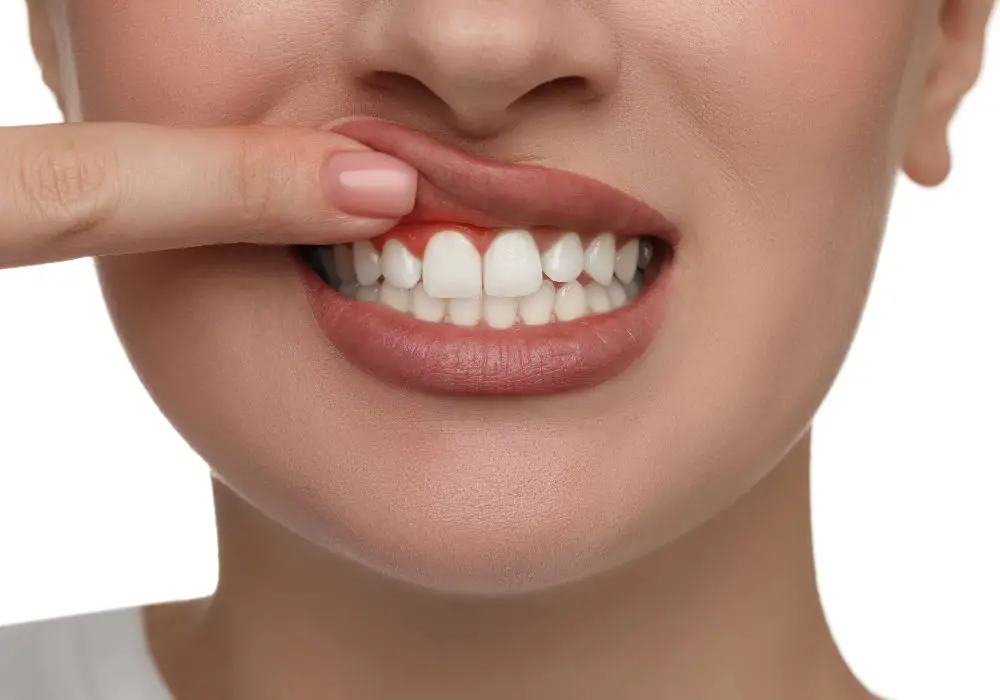
If you’re experiencing gum pain, it’s important to identify the underlying cause so that you can take appropriate action to alleviate the discomfort. Here are some common causes of gum pain:
Gum Disease
Gum disease, also known as periodontal disease, is a common cause of gum pain. It is caused by bacteria in the mouth that can lead to inflammation and infection of the gums. Symptoms of gum disease include red, swollen, and bleeding gums, as well as bad breath and tooth sensitivity. If left untreated, gum disease can lead to tooth loss.
Tooth Decay
Tooth decay is another common cause of gum pain. When a cavity forms in a tooth, it can lead to infection and inflammation of the surrounding gum tissue. Symptoms of tooth decay include toothache, sensitivity to hot and cold, and pain when biting down.
Hormonal Changes
Hormonal changes can also cause gum pain, particularly in women. During pregnancy, for example, hormonal changes can cause the gums to become inflamed and more sensitive. This is known as pregnancy gingivitis and can cause red, swollen, and bleeding gums.
Incorrect Brushing or Flossing
If you’re brushing or flossing too hard or using a toothbrush with bristles that are too stiff, it can cause gum pain. This is because you’re essentially injuring the gum tissue. It’s important to use a soft-bristled toothbrush and to brush and floss gently to avoid causing damage to your gums.
By identifying the cause of your gum pain, you can take steps to alleviate the discomfort and prevent further damage to your gums.
Symptoms Associated With Gum Pain
If you’re experiencing gum pain, it’s essential to identify the symptoms to determine the underlying cause. Here are some common symptoms associated with gum pain:
Red or Swollen Gums
If you notice that your gums are red or swollen, it could be a sign of gum disease. This condition occurs when bacteria build up in your mouth and cause inflammation in your gums. If left untreated, gum disease can lead to tooth loss and other serious health problems.
Bleeding Gums
Bleeding gums are another symptom of gum disease. If you notice blood on your toothbrush or when you floss, it’s important to see a dentist as soon as possible. Bleeding gums can also be a sign of other health issues, such as vitamin deficiencies or hormonal changes.
Loose Teeth
If you have loose teeth, it could be a sign that your gum disease has progressed to periodontitis. This condition causes the bone that supports your teeth to deteriorate, leading to tooth loss. If you have loose teeth, it’s crucial to see a dentist immediately.
Bad Breath
If you have persistent bad breath, it could be a sign of gum disease. The bacteria that cause gum disease can also cause bad breath. If you have bad breath that doesn’t go away with brushing or mouthwash, make an appointment with your dentist.
In conclusion, if you’re experiencing gum pain, it’s essential to identify the symptoms to determine the underlying cause. If you notice any of these symptoms, make an appointment with your dentist as soon as possible.
Does Gum Pain Go Away on Its Own?
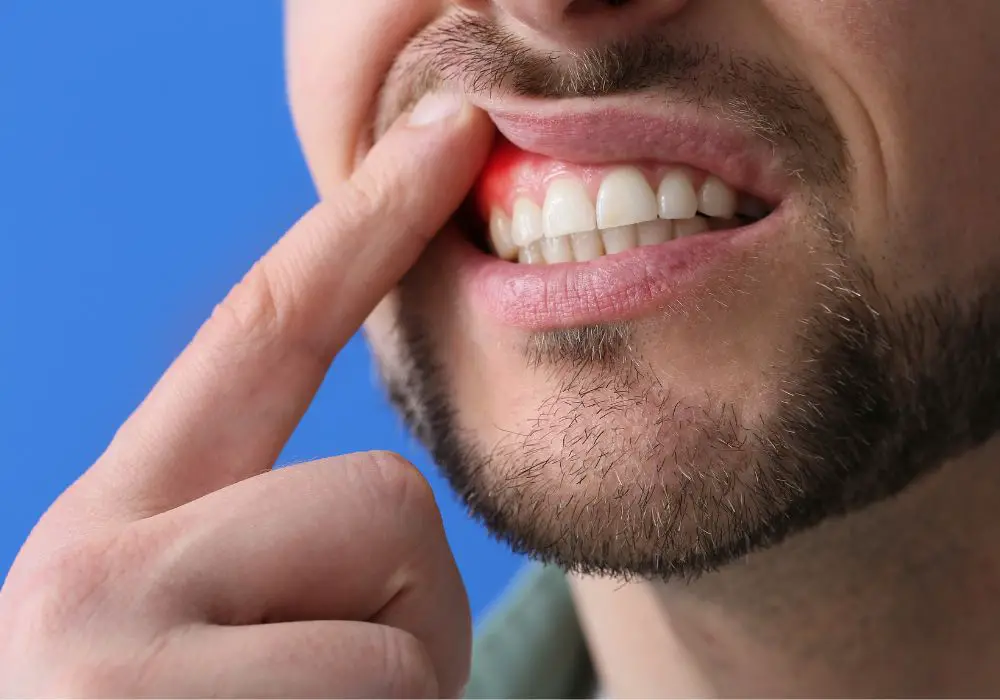
If you are experiencing gum pain, you may be wondering whether it will go away on its own. The answer is that it depends on the cause of the pain.
If your gum pain is due to a minor injury, such as accidentally biting your gum or brushing too hard, it will likely go away on its own within a few days. However, if your gum pain is due to a more serious issue, such as gum disease or an infection, it will not go away on its own and may even get worse if left untreated.
It is important to pay attention to any other symptoms you may be experiencing along with gum pain. If your gums are also bleeding, swollen, or red, it may be a sign of gum disease. In this case, it is important to see a dentist as soon as possible to prevent further damage to your gums and teeth.
In summary, if your gum pain is due to a minor injury, it will likely go away on its own within a few days. However, if your gum pain is due to a more serious issue, it is important to seek professional help to prevent further damage.
When to Seek Medical Attention?
If you are experiencing gum pain, it is important to pay attention to your symptoms and seek medical attention if necessary. Here are some signs that you should seek medical attention:
Persistent Pain
If your gum pain is persistent and does not go away after a few days, it may be a sign of a more serious issue. This could be a sign of gum disease or an infection, which can lead to more serious health problems if left untreated. If you are experiencing persistent gum pain, it is important to schedule an appointment with your dentist or doctor.
Increasing Swelling
If your gum pain is accompanied by increasing swelling, it may be a sign of an infection. This could be a sign of a tooth abscess or gum disease, which can lead to serious health problems if left untreated. If you notice that your gums are becoming increasingly swollen, it is important to seek medical attention as soon as possible.
Fever
If you are experiencing gum pain and have a fever, it may be a sign of an infection. This could be a sign of a tooth abscess or gum disease, which can lead to serious health problems if left untreated. If you have a fever, it is important to seek medical attention as soon as possible.
Remember, if you are experiencing gum pain, it is important to pay attention to your symptoms and seek medical attention if necessary. Your dentist or doctor can help you determine the cause of your gum pain and provide the appropriate treatment.
Prevention and Care for Healthy Gums

Taking good care of your gums is essential for maintaining good oral health. Here are some tips to prevent gum pain and keep your gums healthy.
Regular Dental Check-Ups
Regular dental check-ups are essential to maintain healthy gums. Your dentist will check for signs of gum disease and provide treatment if necessary. It is recommended to visit your dentist every six months for a check-up and cleaning.
Proper Oral Hygiene
Proper oral hygiene is crucial to prevent gum pain and maintain healthy gums. Here are some tips to follow:
- Brush your teeth twice a day with a soft-bristled toothbrush and fluoride toothpaste.
- Floss at least once a day to remove plaque and food particles from between your teeth.
- Use an antiseptic mouthwash to kill bacteria and freshen your breath.
- Replace your toothbrush every three to four months or when the bristles become frayed.
Healthy Diet
A healthy diet can also help prevent gum pain and maintain healthy gums. Here are some tips to follow:
- Eat a balanced diet that includes plenty of fruits and vegetables.
- Avoid sugary and starchy foods that can promote tooth decay and gum disease.
- Drink plenty of water to keep your mouth hydrated and wash away food particles.
By following these tips, you can prevent gum pain and maintain healthy gums. If you experience any symptoms of gum disease, such as swollen or bleeding gums, contact your dentist for an evaluation.
Frequently Asked Questions
How long does gum pain usually last?
The duration of gum pain depends on the cause. If the pain is caused by mild irritation, it may go away on its own within a few days. However, if the pain is due to an infection, it may last longer and require treatment from a dentist.
Can tooth gum pain go away on its own?
In some cases, gum pain can go away on its own if it is caused by mild irritation. However, if the pain persists or is caused by an infection, it is important to seek treatment from a dentist.
When should I be worried about gum pain?
You should be concerned about gum pain if it is severe, lasts for more than a few days, or is accompanied by other symptoms such as swelling, bleeding, or pus. These may be signs of an infection or other serious dental issue.
What are some home remedies for sore gums?
Some home remedies for sore gums include rinsing with salt water, applying a cold compress to the affected area, and using over-the-counter pain relievers. However, if the pain persists or is accompanied by other symptoms, it is important to seek treatment from a dentist.
Why do my bottom gums hurt?
Bottom gum pain can be caused by a variety of factors, including gum disease, tooth decay, or injury. It is important to see a dentist to determine the cause of the pain and receive appropriate treatment.
Why does my gum hurt in one spot in the back?
Gum pain in one spot in the back may be caused by a variety of factors, including gum disease, tooth decay, or injury. It is important to see a dentist to determine the cause of the pain and receive appropriate treatment.

